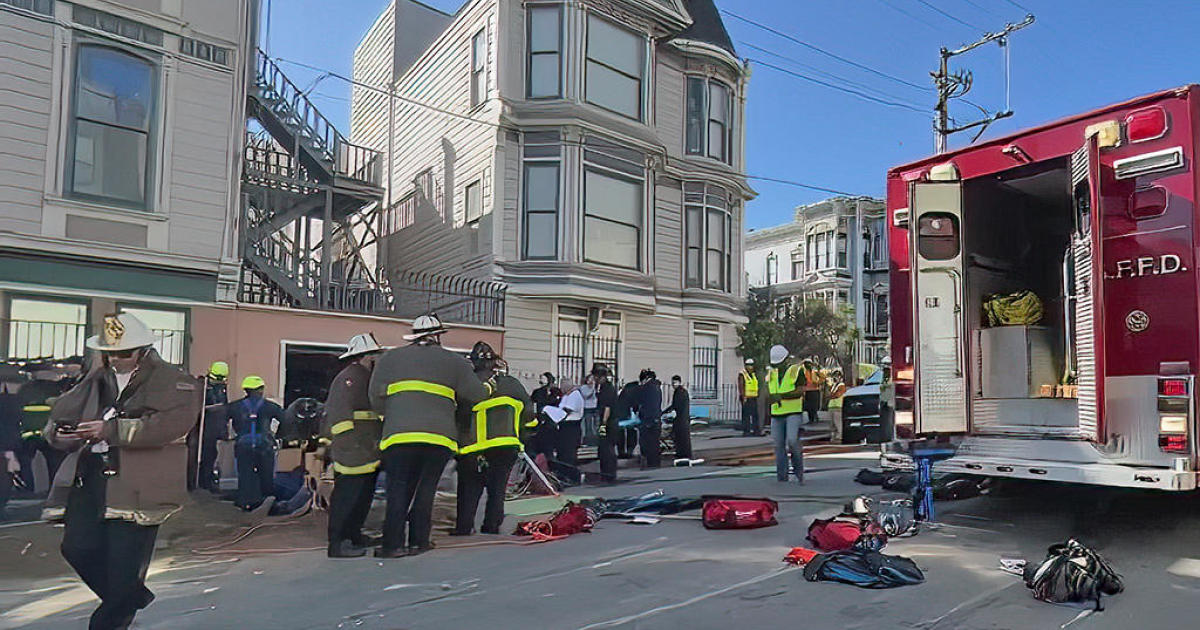CT Scans May Give Patients Too Much Radiation
SAN FRANCISCO (CBS 5) -- 72 million Americans had CT scans last year, a 500 percent increase from just 15 years ago. It's the most common diagnostic test, but it's also one of the least regulated.
Michael Heuser is known as "Patient 1," for bringing to light a medical mystery. It started after he checked into the hospital for a stroke. Heuser suffered dizzy spells, memory loss. A few weeks later, Heuser recalled, "I noticed that I had lost my hair, in this band 4 inches wide around my head."
Barbara Darden suffered almost identical symptoms after her surgery at the same hospital. "My hair was coming out, in handfuls, right above the ear and around, like in a halo," Darden said.
The common denominator: Both had undergone CT scans of the brain, called profusion scans. The bald bands around their heads were the exact same shape as the cradle of the CT scanning machine.
The hospital, Cedars-Sinai in Los Angeles, finally admitted 260 patients had been accidentally exposed to a higher than expected level of x-ray radiation in 2008 and 2009. "My understanding is that I have received more radiation than an individual who was within 2 miles of the explosion of Hiroshima and Nagasaki," Heuser said.
An FDA investigation found the overdoses were about eight times higher than normal, and were likely the result of improper use of the scanner.
That highlights what critics call a glaring problem. While the FDA oversees manufacturers of CT machines, there's absolutely no government oversight of how the machines are operated in medical facilities.
"There has basically been an unregulated wild wild west approach," said Richard Patterson, an attorney that represents many of the victims. "That machine second to the surgeon's scalpel is the most dangerous machine in the hospital. If it's dialed high enough you can be dead by the time you get to the parking lot," he said.
But extreme cases of over-radiation aren't the only issue. "The day to day problem is the radiation is higher than it should be," said Dr. Rebecca Smith-Bindman, a radiology professor at UCSF.
She said a lack of national guidelines allows radiation doses to vary widely, sometimes exposing patients more than needed. "It can lead to an increased risk of cancer, but that cancer won't occur right away, it might not occur for 5,10,20 years," Smith-Bindman said.
In a study published just over a year ago in the Archives of Internal Medicine Smith-Bindman looked at over 1,100 patients undergoing CT scans at 4 Bay Area hospitals: UCSF, California Pacific Medical Center, Marin General and Alta Bates.
"The average doses were twice as high as they should have been and the extreme doses were 20-30 times higher that they should have been," she said.
All 4 Bay Area hospitals told CBS 5 they have made changes to keep radiation doses as low as possible. But Smith-Bindman wants nationwide low dose standards and has testified about it to Congress.
As for accidents like the cases at Cedars Sinai, industry spokesperson Dave Fisher with the Medical Imaging and Technology Alliance said manufacturers have a fix: An alert system called a dose check.
"Some CT manufacturers have already begun shipping new equipment with the new feature and before the end of the year all manufacturers will have done so," Fisher said.
But the fix comes too late for another round of radiation overdoses that came to light this spring at a hospital in West Virginia. The overdoses leave at least 20 more patients to worry about what their future holds in store.
"I live with this anxiety every day, I go to sleep with it, I wake up with it," said Heuser. "Am I going to survive this? Am I going to die from cancer? How long will this take?"
A new law passed last year will require hospitals and imaging facilities to report ct radiation doses to patients and their doctors by 2012. But there is no move for government regulations to keep doses down.
(Copyright 2011 by CBS San Francisco. All Rights Reserved. This material may not be published, broadcast, rewritten, or redistributed.)



